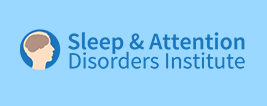What is the relationship between ADHD and sleep?
What is the relationship between ADHD and sleep? Children who have sleep disorders and attention deficit hyperactivity disorder (ADHD) may have similar symptoms, such as inattentiveness, overactivity and restlessness. Unlike adults who become drowsy and less active when sleep is disturbed, children may have the opposite response. The interplay between these disorders is significant, and diagnoses may be mistaken because of the overlap.
Defining ADHD
ADHD is a neurodevelopmental disorder affecting about 5% of people, both children and adults. Those who are affected experience inattention, hyperactivity, forgetfulness, poor impulse control or impulsivity and distractibility. Each of these criteria may manifest in different ways:
- Inattention: careless mistakes, not seeming to listen, trouble keeping attention on tasks, not following instructions, trouble organizing, avoiding mental effort for a long period of time, losing things, easy distraction or forgetfulness
- Hyperactivity-impulsivity: fidgeting, squirming, getting up, running about, trouble enjoying quiet leisure (they are often “on the go”) or talking excessively
- Impulsivity: blurting out answers, trouble waiting his turn, interrupting or intruding
Relationship to Sleep Disorders
There are many sleep disorders that may affect children. Most of the disorders found in adults can also occur in children, including: insomnia, obstructive sleep apnea, and somnambulism. Children more commonly experience night terrors than adults.
Children who have ADHD may be expected to have disrupted sleep. There is a behavioral component to sleep, and parenting difficulties often will extend to bedtime. In addition, there may be psychiatric symptoms, such as anxiety or depression, that can disrupt sleep. Studies have consistently shown higher rates of sleep disorders among children with ADHD.
It is proposed that sleep problems may relate to ADHD in four ways:
- Uniquely related to ADHD
- Related to another disorder that co-occurs with ADHD (e.g., anxiety)
- Result of stimulant medication
- Not related, just common in general
More than 25% of all children, not just those with ADHD, will have a sleep disorder at some point. These have enormous and varying impacts on family dynamics, school success and other health issues.
Restless Little Legs
Children with ADHD will more commonly complain of symptoms consistent with periodic limb movement syndrome (PLMS), or as it is sometimes called “restless legs syndrome” (RLS). These symptoms include uncomfortable sensations, such as bugs crawling on the skin, which are relieved by movement. This phenomenon is worse in the evening or at night while at rest and involves an irresistible urge to move. Studies have shown that 24% to 26% of subjects with ADHD have RLS, compared to just 5% of controls. The number of disruptive movements at night are strongly associated with the degree of hyperactivity during the day.
Snoring, Sleep Apnea and Hyperactivity
Children may have difficulty breathing at night, ranging from mild snoring to full sleep apnea. The causes include:
Again, children with these sleep difficulties are not usually excessively sleepy. Rather, they will have bedwetting, sweating, developmental delay and learning or behavior difficulties. Habitual snoring occurs in up to 1/3 of children with ADHD compared to only 10% of controls. The relationship between the number of breathing disruptions and drops in oxygen levels in the blood and hyperactivity has not been established; however, one study suggests that 81% of habitually snoring children who have ADHD could have their ADHD eliminated if the snoring were effectively treated.
Are Sleep Disorders More Common in ADHD?
In reviewing the available medical literature, there are trends in the data that suggest some sleep disorders may be more common in ADHD. Unfortunately, there is not complete consensus and more research needs to be done. When comparing children with ADHD who are not being treated with medication to children without ADHD, there are a few trends that may prove to be true:
- Most studies show no difference in total sleep time or the time it takes to fall asleep.
- Most studies show increased restlessness and periodic limb movements during sleep.
- The percent of time spent in rapid eye movement (REM) sleep may be decreased.
- The occurrence of parasomnias, nightmares and bedwetting may be increased.
Unfortunately, more study is needed before we fully understand these relationships.
Role of Stimulants
The use of prescription drugs to treat ADHD may add another level of complexity to the issue. Stimulants are often used to treat ADHD, as well as narcolepsy and chronic fatigue syndrome. Parents of children treated with stimulants perceive a higher prevalence of sleep problems (29% versus 10%), and this is most commonly insomnia. These effects are especially noted when doses are too close to bedtime. How these medications may affect other aspects of sleep is not well understood.
The Importance of Treatment
Untreated ADHD leads to significant impairment in interpersonal, vocational and cognitive domains, including intelligence quotient (IQ) scores that are 20 points lower than controls. It is important that children who experience inattention, impulsivity and hyperactivity be evaluated for ADHD and, as appropriate, sleep disorders.









